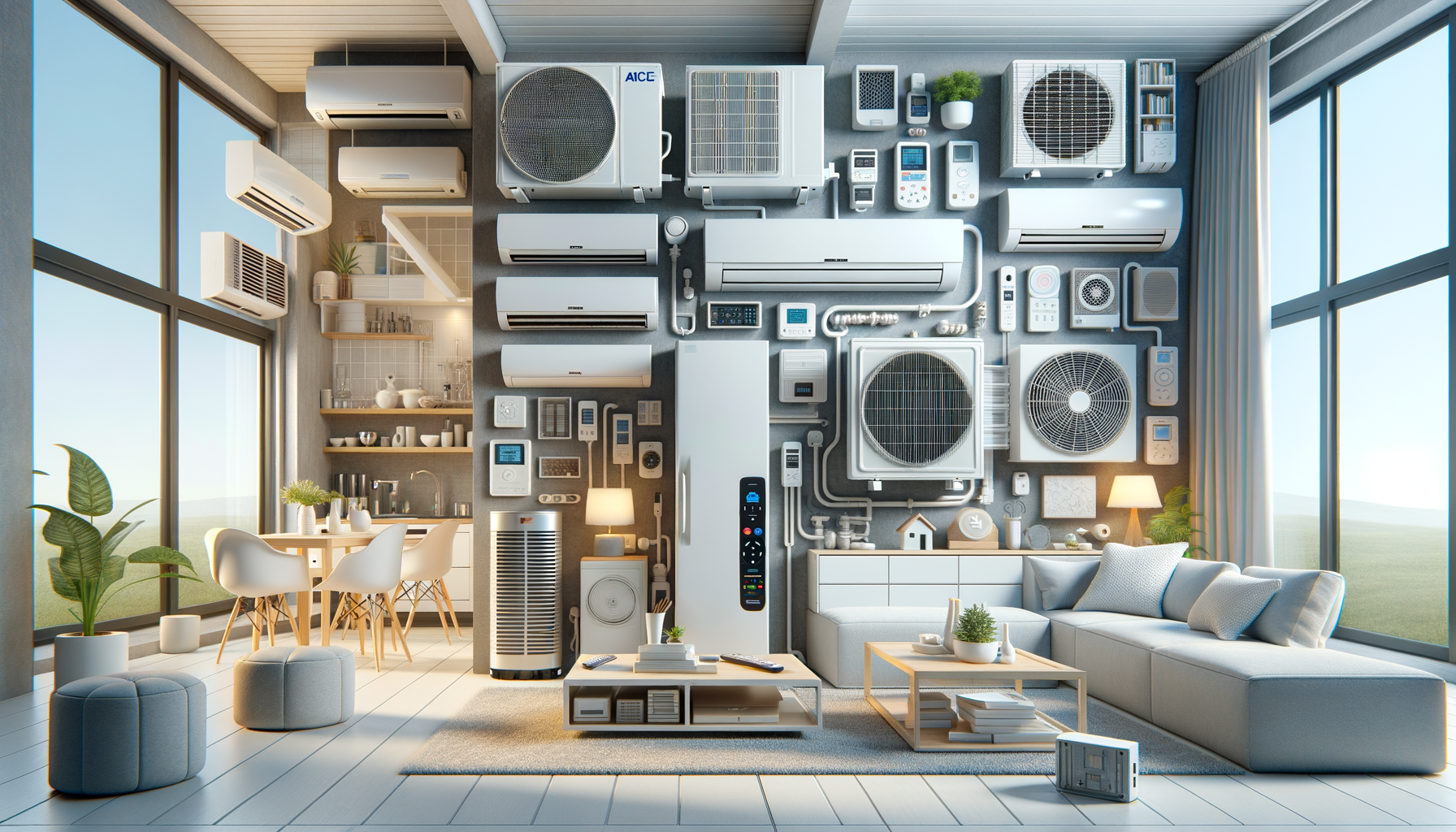
Ductless Air Conditioning Systems for Home: A Comprehensive Guide
Introduction to Ductless Air Conditioning Systems
In recent years, ductless air conditioning systems have gained popularity as an efficient and flexible alternative to traditional HVAC systems. These systems, also known as mini-split systems, offer a unique solution for homeowners looking to improve their indoor climate control without the need for extensive ductwork. Ductless systems are particularly appealing for older homes or buildings where installing ductwork is not feasible. Understanding the benefits and functionality of ductless air conditioning can help homeowners make informed decisions about their cooling needs.
Ductless air conditioning systems consist of an outdoor unit connected to one or more indoor units, providing targeted cooling to specific areas of a home. This setup allows for greater control over the temperature in individual rooms, enhancing comfort and energy efficiency. As energy costs continue to rise, the appeal of ductless systems lies in their ability to reduce energy consumption while maintaining optimal indoor temperatures.
How Ductless Air Conditioning Systems Work
Ductless air conditioning systems operate by using a simple yet effective mechanism that eliminates the need for traditional ductwork. The system comprises two main components: an outdoor compressor unit and one or more indoor air-handling units. These components are connected by a conduit that houses the power cable, refrigerant tubing, suction tubing, and a condensate drain.
The outdoor unit compresses and circulates the refrigerant to the indoor units, which then cool the air and distribute it into the room. Each indoor unit can be controlled independently, allowing users to customize the temperature settings for different zones within their home. This zoned approach not only enhances comfort but also contributes to significant energy savings, as homeowners can choose to cool only the rooms that are in use.
Moreover, ductless systems are equipped with advanced filtration technology that helps improve indoor air quality by removing dust, allergens, and other pollutants. This feature is particularly beneficial for individuals with allergies or respiratory conditions, as it creates a healthier living environment.
Benefits of Ductless Air Conditioning Systems
One of the primary advantages of ductless air conditioning systems is their energy efficiency. By eliminating the energy losses associated with ductwork, these systems can achieve higher efficiency ratings compared to traditional HVAC systems. This efficiency translates into lower utility bills, making ductless systems a cost-effective option for many homeowners.
Another significant benefit is the ease of installation. Since ductless systems do not require extensive ductwork, they can be installed quickly and with minimal disruption to the home. This makes them an ideal choice for retrofitting older buildings or for adding climate control to new additions or outbuildings.
Additionally, ductless systems offer enhanced flexibility and control. Homeowners can adjust the temperature in each room independently, ensuring personalized comfort for everyone in the household. This level of control is particularly useful in multi-story homes or in spaces with varying occupancy, such as guest rooms or home offices.
- Energy-efficient operation
- Quick and easy installation
- Individual room temperature control
- Improved indoor air quality
Installation Process of Ductless Air Conditioning Systems
The installation process of ductless air conditioning systems is straightforward and typically completed in a single day. It involves mounting the indoor units on walls or ceilings and placing the outdoor unit in a convenient location outside the home. The two units are then connected using the conduit, which requires only a small hole to be drilled through the wall.
Professional installation is recommended to ensure the system operates efficiently and effectively. A qualified technician will assess the home’s layout and cooling needs to determine the optimal placement of indoor units. They will also handle the electrical connections and refrigerant charging, ensuring the system is set up to deliver maximum performance.
For homeowners considering a DIY approach, it’s important to note that improper installation can lead to reduced efficiency and potential damage to the system. Therefore, hiring a professional installer is a worthwhile investment that can prevent future issues and prolong the lifespan of the system.
Energy Efficiency and Cost Savings
One of the most compelling reasons to choose a ductless air conditioning system is its potential for energy efficiency and cost savings. Traditional HVAC systems can lose up to 30% of energy through ductwork, especially if the ducts are located in unconditioned spaces like attics or crawlspaces. By eliminating ducts, ductless systems avoid these energy losses entirely.
Furthermore, the ability to control the temperature in individual rooms means that homeowners can reduce energy consumption by cooling only the spaces that are occupied. This targeted approach can lead to substantial energy savings over time, making ductless systems an environmentally friendly choice.
Many ductless systems also qualify for energy rebates and incentives, further reducing the overall cost of installation. Homeowners should check with local utility companies and government programs to explore available rebates, which can make switching to a ductless system even more affordable.
- Eliminates ductwork energy losses
- Offers zoned cooling for targeted energy use
- Qualifies for energy rebates and incentives
Conclusion: Is a Ductless Air Conditioning System Right for You?
Ductless air conditioning systems offer a modern solution for homeowners seeking efficient, flexible, and cost-effective climate control. Their ability to provide targeted cooling, improve indoor air quality, and reduce energy consumption makes them an attractive option for many households. While the initial investment may be higher than traditional systems, the long-term savings and enhanced comfort often justify the cost.
Before making a decision, homeowners should consider their specific cooling needs, budget, and the layout of their home. Consulting with a professional installer can provide valuable insights and help determine if a ductless system is the right fit. With the potential for energy savings and increased comfort, ductless air conditioning systems represent a smart investment in home climate control.


